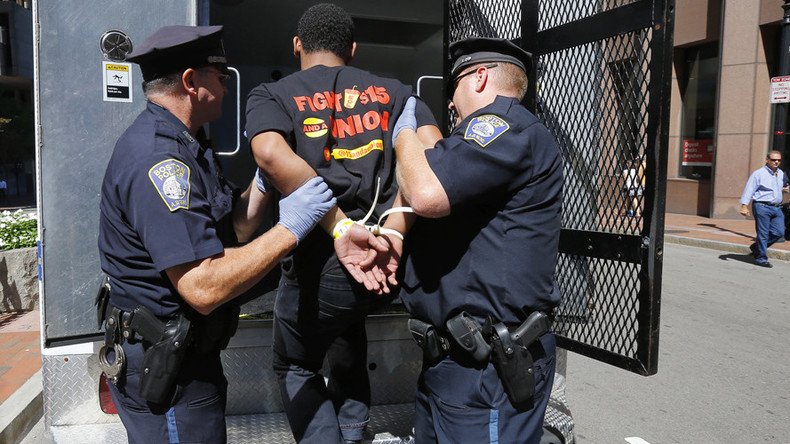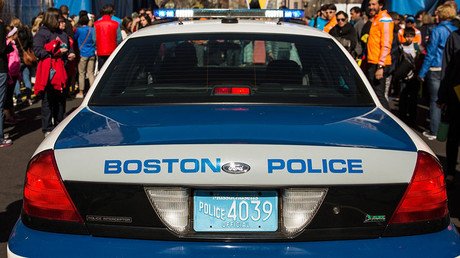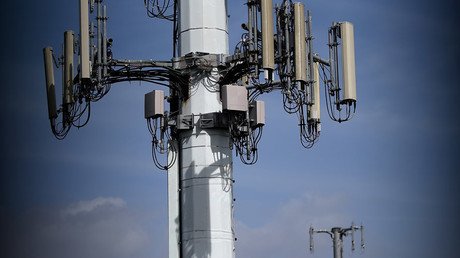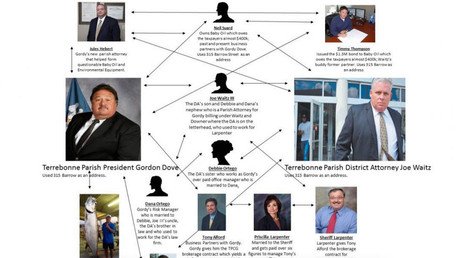Black men have legitimate reason to run from police – Massachusetts supreme court

Based on the disproportionate number of police stops of black males in Boston and a state law that does not require individuals to speak to police or remain in their presence, Massachusetts’ highest court ruled that a black man had reason to flee police.
The case before the Massachusetts Supreme Judicial Court was based on the gun conviction of Jimmy Warren, who was arrested in December 2011 while Roxbury police investigated a break-in. Based on a description of "dark clothing," police approached Warren and another man. The pair ran from the cops, but were later searched and arrested. Warren was charged with unlawful possession of a firearm even though he was not armed at the time of his arrest. An unlicensed gun had been recovered by police in a nearby yard, WBUR reported, and Warren was eventually convicted.
In throwing out Warren's conviction, the high court said that police did not have a reason to stop and search Warren, as they did not have reasonable suspicion for the stop.
"Lacking any information about facial features, hairstyles, skin tone, height, weight, or other physical characteristics, the victim's description 'contribute[d] nothing to the officers' ability to distinguish the defendant from any other black male' wearing dark clothes and a 'hoodie' in Roxbury," the court said in its ruling.
The court added that the description of the clothing was too "vague," and thus there was no evidence for police to "reasonably and rationally" target Warren or any other black man wearing dark clothing.
Massachusetts Supreme Judicial Court can understand why black men run from police. https://t.co/fitjdd8e3b
— Anthony De Rosa (@Anthony) September 21, 2016
Citing state law that gives individuals the right to avoid speaking with police and to walk away from police if they are not charged with a crime, the court also ruled that running from police does not indicate guilt.
Furthermore, the court said that black men have more of a reason to flee based on racial profiling. To back up its point, the court referenced data on police stops released by the Boston Police Department and the American Civil Liberties Union of Massachusetts that showed black individuals have been disproportionately stopped by Boston-area police.
The court said it considered 2014 Boston police data, which found that black persons were 8 percent more likely to be stopped repeatedly and 12 percent more likely to be search and frisked no matter certain conditions like criminal history, and a 2014 ACLU report, which found disproportionate police attention was paid to black persons in Boston from 2007 to 2010, that documented "a pattern of racial profiling of black males in the city of Boston."
"We do not eliminate flight as a factor in the reasonable suspicion analysis whenever a black male is the subject of an investigatory stop," the court wrote in its ruling. "However, in such circumstances, flight is not necessarily probative of a suspect's state of mind or consciousness of guilt. Rather, the finding that black males in Boston are disproportionately and repeatedly targeted for FIO [Field Interrogation and Observation] encounters suggests a reason for flight totally unrelated to consciousness of guilt."
The court added: "Such an individual, when approached by the police, might just as easily be motivated by the desire to avoid the recurring indignity of being racially profiled as by the desire to hide criminal activity. Given this reality for black males in the city of Boston, a judge should, in appropriate cases, consider the report's findings in weighing flight as a factor in the reasonable suspicion calculus."
Boston Police Commissioner Bill Evans said the court's decision relied too heavily on the "tainted" ACLU report.
In contrast to a ruling by state’s high court, Boston police insisted that they did not engage in racial profiling https://t.co/zYAoW23D01
— The Boston Globe (@BostonGlobe) September 21, 2016
"I think they relied heavily on an ACLU report that I think was clearly way out of context," Evans said Tuesday, according WBUR. "I’m a little disappointed that they relied heavily on a report that didn’t take into context who was stopped and why. That report clearly shows that we were targeting the individuals that were driving violence in the city and the hot spots."
Evans insisted his department's report did not indicate racial bias in police stops.
Read our report, cited by Mass. SJC in ruling that Black men may have legitimate reason to flee police https://t.co/jq0ylOfYkypic.twitter.com/wNs2zeIZek
— ACLU Massachusetts (@ACLU_Mass) September 21, 2016
Matthew Segal, legal director of the state's ACLU chapter, hailed the court's "powerful ruling."
"The state’s highest court, in talking about people of color, it’s saying that their lives matter and under the law, their views matter," Segal said. "The reason that’s significant is that all the time in police-civilian encounters there are disputes about what is suspicious and what is not suspicious. So this is an opinion that looks at those encounters through the eyes of a black man who might justifiably be concerned that he will be the victim of profiling."
Earlier this month, a judge ruled that Boston police officers can begin wearing body cameras during their patrols. The city's largest police union, the Boston Police Patrolmen’s Association, had sought to halt the program after the department initiated it in violation of the city-union contract, the association claimed.















